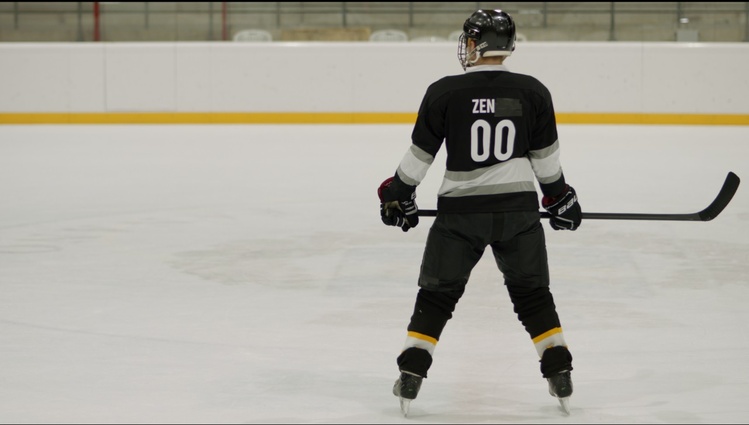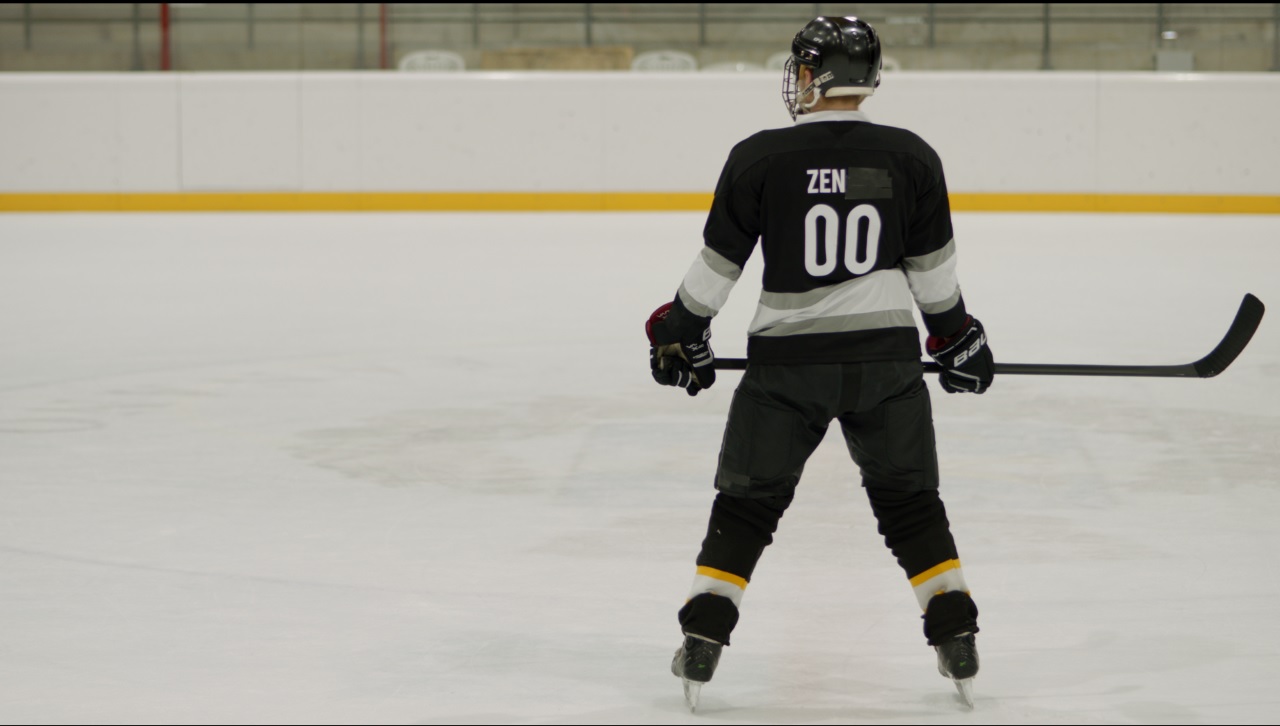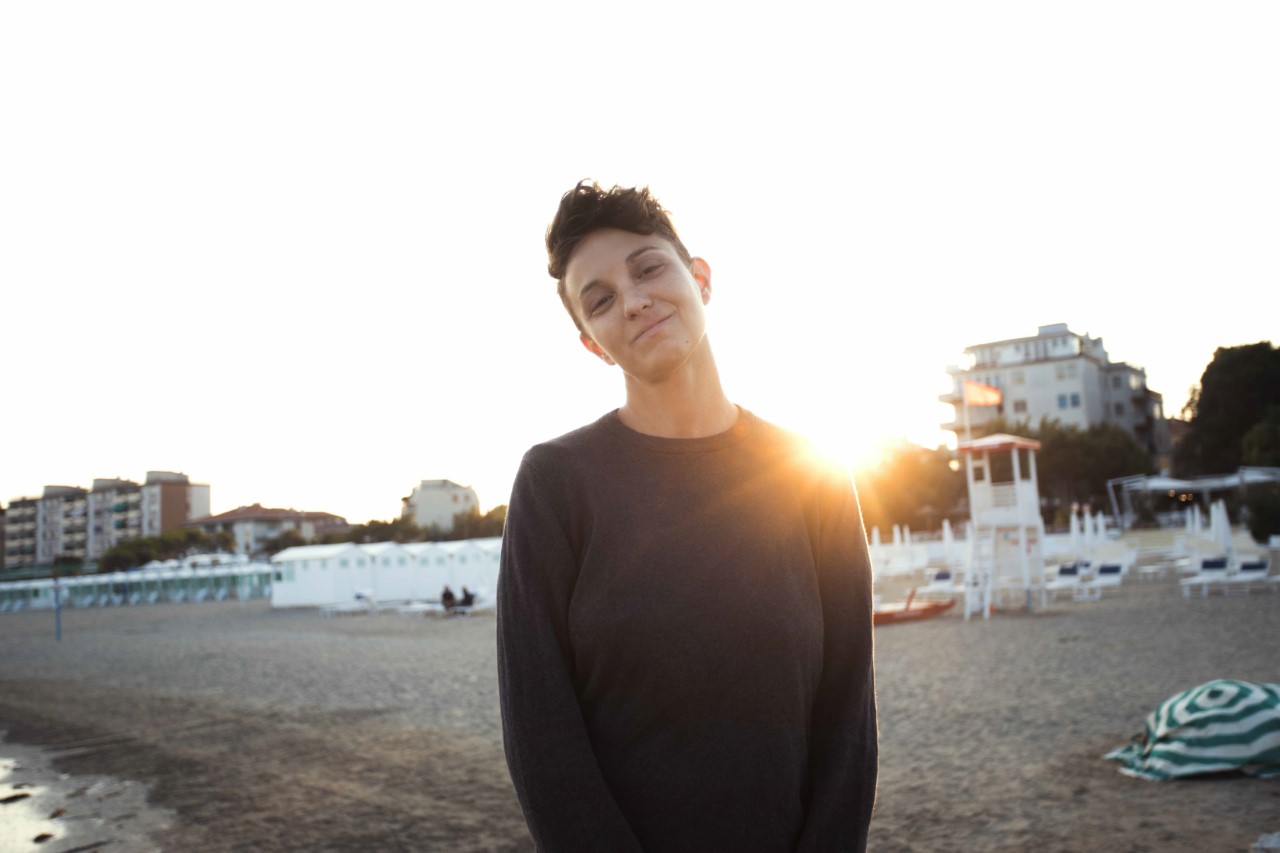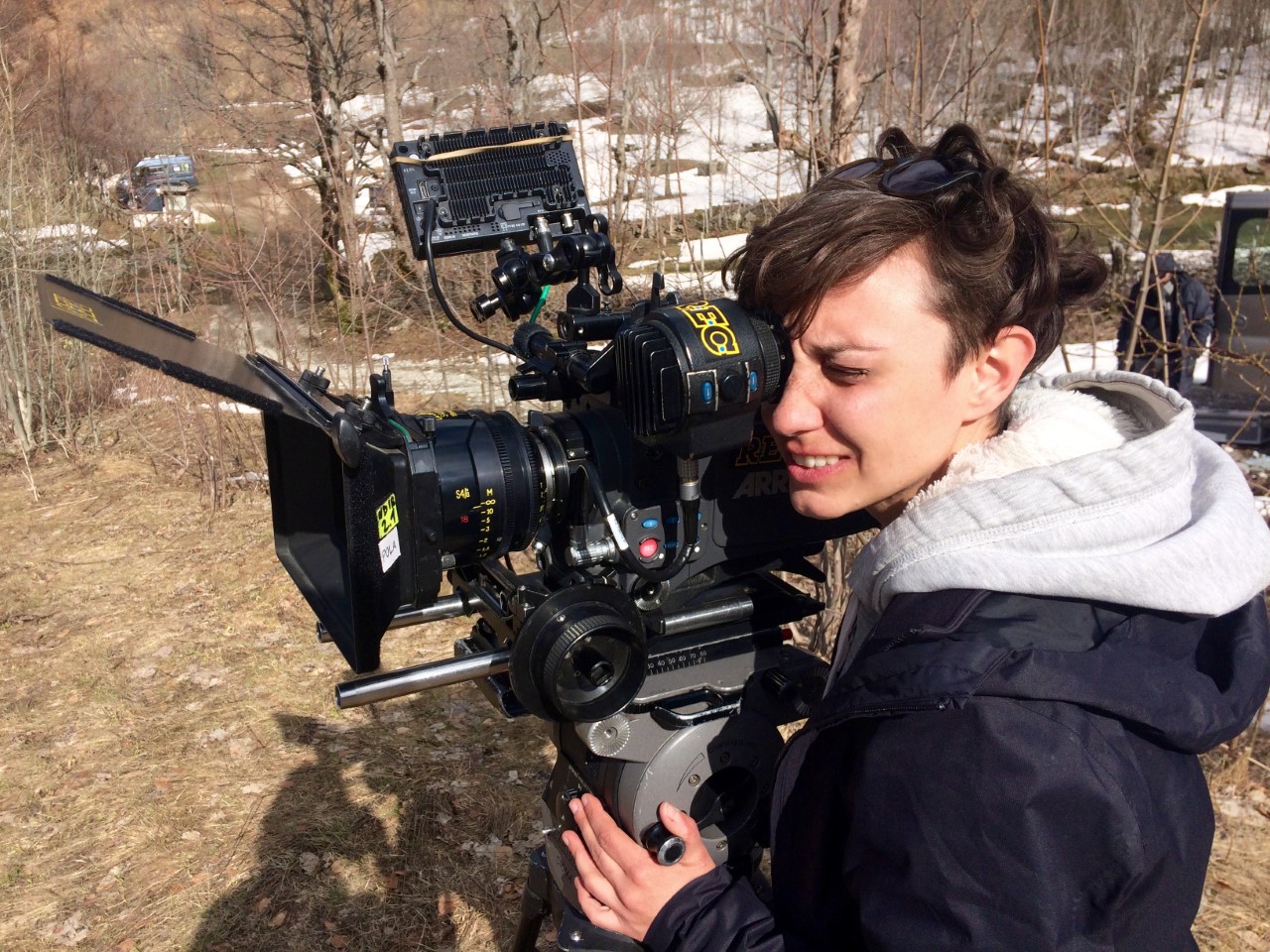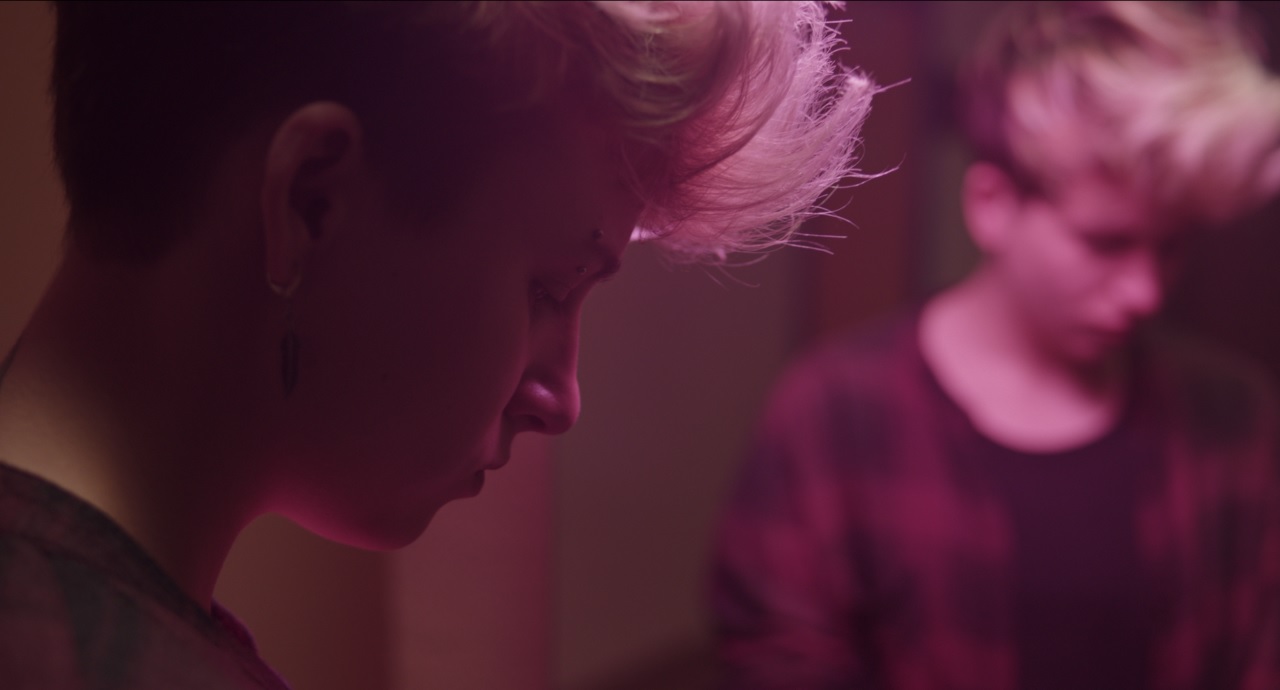The film, which had its world premiere at the 2018 Venice International Film Festival, was one of three projects supported by the prestigious Biennale College Cinema program, which allocates funding to support the production of micro-budget movies.
Using stunning visuals and gorgeous cinematography, Ferri’s unconventional coming of age tale channels a defiant attitude as it shows the challenges and triumphs that come along with the uncompromising need to express oneself.
Zen in the Ice Rift tells the story of Maia, who calls themself Zen, a rowdy yet solitary 16-year-old living in a small village on top of the Italian Apennines.
Perceived as the only girl on the local ice hockey team, Zen’s differences and masculinity draw both animosity and curiosity from the other kids.
When Vanessa – the beautiful and bewildered girlfriend of the team captain – runs away from home and hides in Zen’s family lodge, the two begin to learn more of each other and themselves in their exploration of desire and identity.
It’s a film which bravely confronts the complexities of living as a non-gender conforming person, within the realities of homophobic bullying and discrimination.
Zen in the Ice Rift co-producer Chiara Galloni, of production company Articolture, explained that bullying and discrimination due to homophobia are still widespread in Italian contemporary society.
“Especially in this historical period, management of the phenomenon is not among the priorities of national politics,” she added.
Galloni cited the presence of the Catholic Church and its dogmas as one reason why it continues.
“We were unable to show the film in all the schools where we would have wanted, because the national authority which proposes the yearly scholastic films didn’t include it in their catalogues, wanting to avoid ‘diplomatic’ conflicts with teachers and parents,” she said.
“It was also difficult to distribute the film as a ‘rerun’ because in Italy they are often screened in parish cinemas, which refused to project the film, because of its themes.
“Arcigay and the LGBT associations do a great job, but they are largely concentrated in the big cities, and many areas (especially those inland) are ‘left to themselves’.
“This leads to many non-conforming youth to feel as if they are deeply different, rejected, and must hide themselves, unable to freely live their identity and sexuality.”
To represent this sense of confusion, queer director Ferri experimented with the notion of “emotional landscape”.
The solitude, harshness and “emptiness” of the mountains represent those feelings which the main protagonist is experiencing.
Production company Articolture is specialised in bringing forth strategies of development and production which are integrated with the communities in which they shoot.
Since the beginning stages of production, the film crew worked in close contact with the LGBT community in their area, with the Cassero LGBT Center in Bologna being one of the first partners of the project.
The film team were permitted to work with local high school students in the Apennines area, running workshops on homophobic discrimination which were attended by more than 100 students.
From these LGBT youths the secondary actors were chosen.
The two main actresses in the film, Eleonora Conti and Susanna Acchiardi, were also non-professional but were chosen from a more traditional casting procedure, which was nonetheless promoted by the LGBT community.
Galloni mentioned that the team received many thank you notes from the community who wished to congratulate them on their efforts in producing a cultural legacy which affronts these difficult themes, and which has a female director at its helm.
Ferri was born in Imola, Emilia-Romagna, and began her filmmaking career in high school when she and her friends began creating “weird short films with Hi8 and VHA cameras”.
Although she initially wished to be a poet, she felt “the urgency to take my visions out of the page and give them forms, colours, faces”.
She had the opportunity to explore and fully express her lesbian identity after receiving a scholarship to attend the UCLA School of Film and TV in Los Angeles, USA.
She said the experience “changed my life forever”.
“There, I had the change to get a deeper insight on filmmaking and storytelling and I also had the possibility to fully understand my sexuality and freely live as a lesbian, in extraordinary and sensual LA.”
After UCLA, Ferri went on to work as a film programmer for Gender Bender Festival in Bologna, and eventually to Rome, where she was selected among hundreds of applicants to be one of six students of the directing class at Centro Sperimentale, National School of Cinema.
For three years she crafted her screenwriting skills and directed short films in 35mm and HD, including her thesis film, a documentary shot in a Kenyan village in Africa.
Ferri was supervised for a period by director Paolo Sorrentino, who she considers to be her “Maestro”.
She went on to co-create and direct the successful web-series STATUS and in 2017 she directed the award winning short-documentary I hate pink!.
On Zen in the Ice Rift, her first feature length film, Ferri said: “Most of the stories that Maia goes through are autobiographical: the restlessness of being an outsider as teenager, the magic of falling in love with a girl without knowing what is happening or even how to name what is happening, the tragic loss of my father.
“These emotions are the very essence of the film.
“While I was in film school, the Oscar-winning director Paolo Sorrentino told me: ‘Some stories hurt you while you write them.’
“I guess this has to be one.
“It’s not easy to put such a deep and personal wound in a movie and it’s also the first time that I have the chance to talk about it, but I believe that making a movie is the best way to tell that part of my personal story.”
Zen in the Ice Rift will screen on Monday, February 18 at 7:30 pm, at Event Cinemas George St, as part of Queer Screen’s 26th Mardi Gras Film Festival.
Book your tickets on the Queer Screen website.

